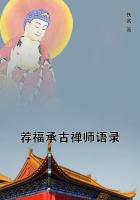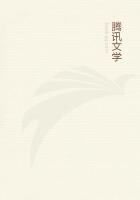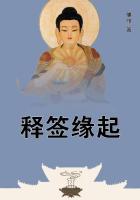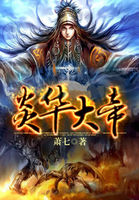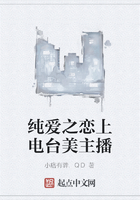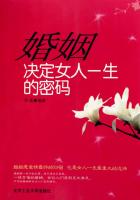Religion and Science §1. We too often forget that not only is there "a soul of goodnessin things evil," but very generally also, a soul of truth in thingserroneous. While many admit the abstract probability that a falsity has usuallya nucleus of verity, few bear this abstract probability in mind, when passingjudgment on the options of others. A belief that is proved to be grosslyat variance with fact, is cast aside with indignation or contempt; and inthe heat of antagonism scarcely any one inquires what there was in this beliefwhich commended it to men's minds. Yet there must have been something. Andthere is reason to suspect that this something was its correspondence withcertain of their experiences: an extremely limited or vague correspondenceperhaps, but still, a correspondence. Even the absurdest report may in nearlyevery instance be traced to an actual occurrence; and had there been no suchactual occurrence, this preposterous misrepresentation of it would neverhave existed. Though the distorted or magnified image transmitted to us throughthe refracting medium of rumour, is utterly unlike the reality; yet in theabsence of the reality there would have been no distorted or magnified image.
And thus it is with human beliefs in general. Entirely wrong as they mayappear, the implication is that they originally contained, and perhaps stillcontain, some small amount of truth.
Definite views on this matter would be very useful to us. It is importantthat we should form something like a general theory of current options, sothat we may neither over-estimate nor under-estimate their worth. Arrivingat correct judgments on disputed questions, much depends on the mental attitudepreserved while listening to, or taking part in, the controversies; and forthe preservation of a right attitude, it is needful that we should learnhow true, and yet how untrue, are average human beliefs. On the one hand,we must keep free from that bias in favour of received ideas which expressesitself in such dogmas as "What every one says must be true," or"The voice of the people is the voice of God." On the other hand,the fact disclosed by a survey of the past that majorities have usually beenwrong, must not blind us to the complementary fact that majorities have usuallynot been entirely wrong. And the avoidance of these extremes being a pre-requisiteto catholic thinking, we shall do well to provide ourselves with a safeguardagainst them, by making a valuation of opinions in the abstract. To thisend we must contemplate the kind of relation that ordinarily subsists betweenopinions and facts. Let us do so with one of those beliefs which under variousforms has prevailed among all nations in all times. §2. Early traditions represent rulers as gods or demigods. By theirsubjects, primitive kings were regarded as superhuman in origin and superhumanin power. They possessed divine titles, received obeisances like those madebefore the altars of deities, and were in some cases actually worshipped.
Of course along with the implied beliefs there existed a belief in the unlimitedpower of the ruler over his subjects, extending even to the taking of theirlives at will; as until recently in Fiji, where a victim stood unbound tobe killed at the word of his chief himself declaring, "whatever theking says must be done."
In other times and among other races, we find these beliefs a little modified.
The monarch, instead of being thought god or demigod, is conceived to bea man having divine authority, with perhaps more or less of divine nature.
He retains, however, titles expressing his heavenly descent or relationships,and is still saluted in forms and words as humble as those addressed to theDeity. While in some places the lives and properties of his people, if notso completely at his mercy, are still in theory supposed to be his.
Later in the progress of civilization, as during the middle ages in Europe,the current opinions respecting the relationship of rulers and ruled arefurther changed. For the theory of divine origin there is substituted thatof divine right. No longer god or demigod, or even god-descended, the kingis now regarded simply as God's vicegerent. The obeisances made to him arenot so extreme in their humility; and his sacred titles lose much of theirmeaning. Moreover his authority ceases to be unlimited. Subjects deny hisright to dispose at will of their lives and properties, and yield allegianceonly in the shape of obedience to his commands.
With advancing political option has come still greater restriction ofmonarchical power. Belief in the supernatural character of the ruler, longago repudiated by ourselves for example, has left behind it nothing morethan the popular tendency to ascribe unusual goodness, wisdom, and beautyto the monarch. Loyalty, which originally meant implicit submission to theking's will, now means a merely nominal profession of subordination, andthe fulfilment of certain forms of respect. By deposing some and puttingothers in their places, we have not only denied the divine rights of certainmen to rule, but we have denied that they have any rights beyond those originatingin the assent of the nation. Though our forms of speech and our State-documentsstill assert the subjection of the citizens to the ruler, our actual beliefsand our daily proceedings implicitly assert the contrary. We have entirelydivested the monarch of legislative power, and should immediately rebel againsthis or her dictation even in matters of small concern.
Nor has the rejection of primitive political beliefs resulted only intransferring the power of a autocrat to a representative body. The viewsheld respecting governments in general, of whatever form, are now widelydifferent from those once held. Whether popular or despotic, governmentsin ancient times were supposed to have unlimited authority over their subjects.

